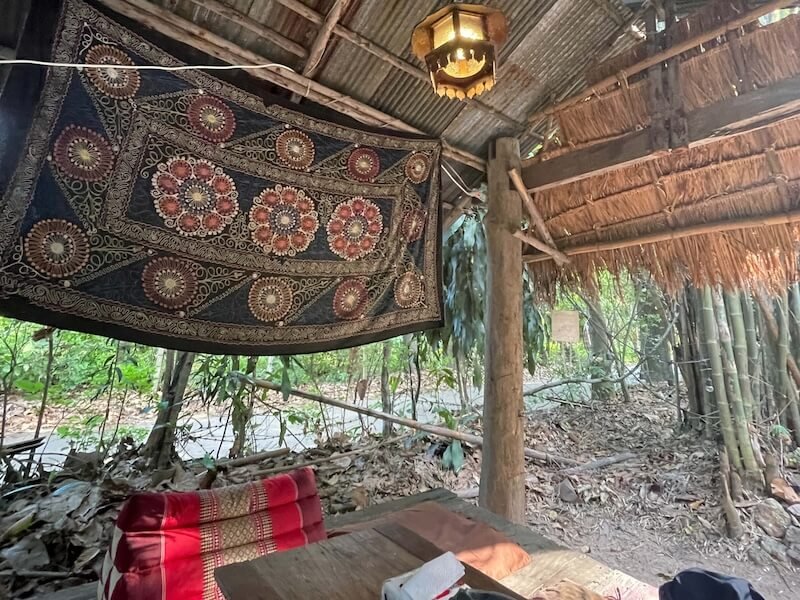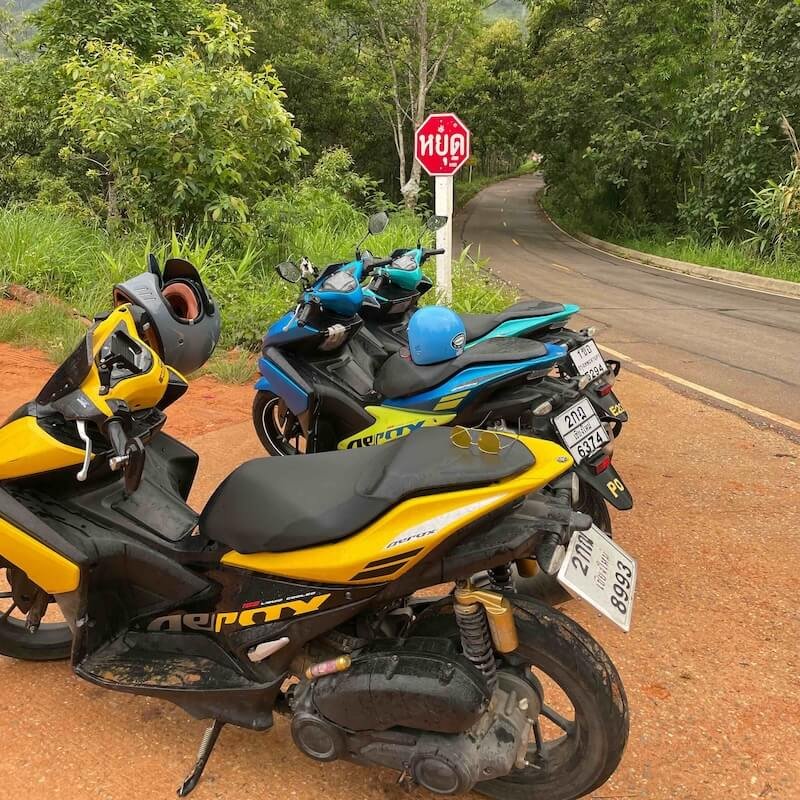If you’re planning to rent in Chiang Mai in 2025, you might assume it’s as simple as finding a nice place, signing a contract, and moving in. That was my thought process too, until I learned the hard way…multiple times.
Over the years, I’ve rented 15 to 20 different properties in Chiang Mai. Houses, condos, studios, serviced apartments – you name it.
Some were fantastic, but others turned into stressful, frustrating, and costly mistakes.
From shady landlords inflating electricity bills to cockroach infested properties, I’ve encountered nearly every issue you can imagine.
What’s worse? I’m not the only one.
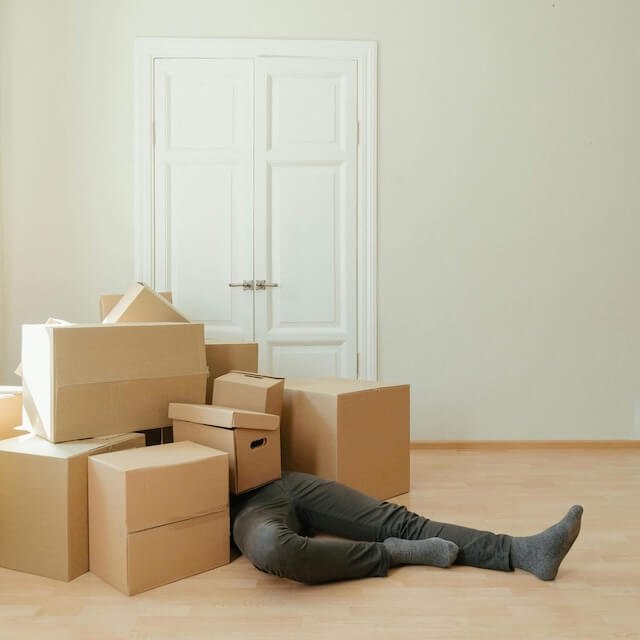
After speaking with other expats and nomads, I realized these problems are surprisingly common, especially for newcomers who don’t yet know the warning signs.
So, in this article, I’m laying it all out. I’ll break down every rental disaster I experienced, explain how I fixed it (or suffered through it), and most importantly, give you the knowledge to avoid these headaches entirely.
If you’re serious about renting in Chiang Mai without getting ripped off, stuck in a nightmare apartment, or moving every few months, keep reading, this is:
Everything I wish I knew before signing my first lease in Chiang Mai, Thailand.
Chiang Mai Electricity Scams: How Landlords Overcharge Renters
Electricity scams are one of the most common rental traps in Chiang Mai, and unfortunately, I learned this the hard way.
During my time living in Nimman, I rented an otherwise amazing apartment from a landlord who, at first, seemed completely reasonable. The contract stated that electricity would be charged at 10 baht per unit, which, while higher than the government rate, wasn’t unheard of in private rentals. The landlord justified this by saying it covered “common area fees” (which, realistically, only included a few hallway lights).
I knew this was overpriced, but the apartment was great, and based on our usual electricity usage of 300 units per month, I estimated a 3,000 THB bill, which we were willing to tolerate.
Then the Real Scam Began…
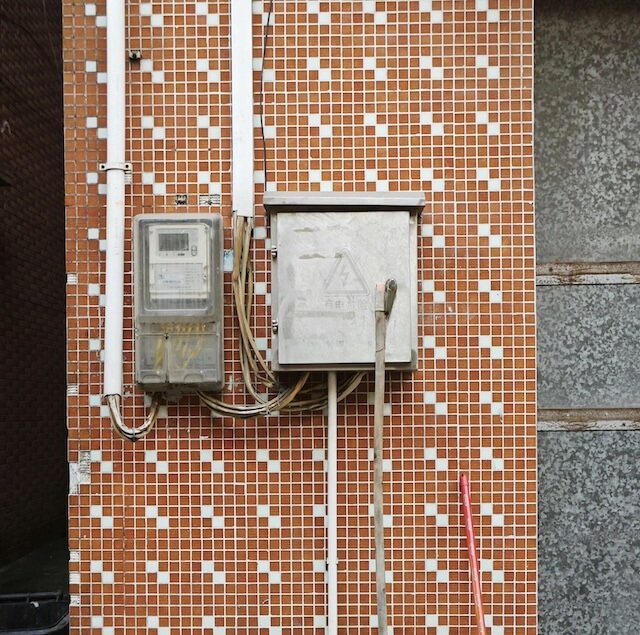
For the first three months, everything seemed normal, our bills matched our expectations.
But then, in month four, the landlord approached us with a ridiculous request:
“Can you pay extra? The apartment upstairs pays 5,000 THB per month, and you’re only paying 3,000.”
Obviously, we refused. Our usage was consistent, and we weren’t about to “tip” our landlord for electricity. After some passive aggressive glares, the conversation ended.
But this was just the beginning.
A few weeks later, we went on a short trip, and when we returned, the landlord hit us with another surprise:
“We changed your electricity meter while you were away. Yours was running too slow.”
At first, we didn’t think much of it. But after a couple of days, I checked the meter out of curiosity, and what I saw made my blood boil.
Our daily electricity consumption had suddenly tripled.
It was impossible. Nothing about our usage had changed, yet the numbers were running out of control.
The “Hot Meter” Scam
What happened to us is a classic scam used by shady landlords:
- Overcharging on electricity from the start – The government rate at the time was around 4 baht per unit, yet we were being charged 10 baht.
- Tampering with the electricity meter – By swapping in a “hot meter” (one that runs fast or exaggerates usage), the landlord inflates the bill even further.
- Pocketing the difference – Since electricity fees are paid directly to the landlord, they keep everything above the actual cost.
How We Shut It Down
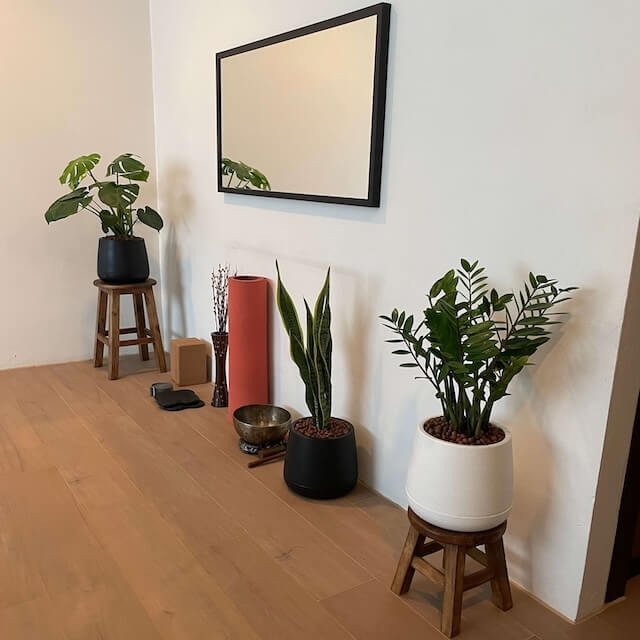
At this point, we had two choices:
- Break the lease and lose our deposit.
- Fight back and force the landlord to drop the scam.
Since we had already paid a substantial deposit, we weren’t going down without a fight.
We consulted a friend in the Thai property industry who informed us of a crucial legal loophole:
If a landlord owns more than five rental units in the same building, they are legally required to charge government rate electricity. Anything above that is illegal.
Armed with this knowledge, we drafted a calm but firm letter of legal intent, stating that we would pursue action if the issue wasn’t resolved.
The result? Lease terminated, deposit refunded, and we walked away clean.
How You Can Avoid This Scam
Don’t let yourself fall into the same trap, here’s how to protect yourself before signing a lease:
- Know the standard electricity rates. Government electricity rates usually range from 4-5 baht per unit. Established condos might charge up to 8 baht, but anything higher than that is a red flag.
- Ask about electricity pricing upfront. If the landlord charges above 8 baht per unit, walk away, it’s not worth the headache.
- Research the landlord. If renting from a private landlord or a small, independent building, be extra cautious. They are the ones most likely to manipulate meters or overcharge.
- Check your meter regularly. Take photos of your meter when you move in and compare your daily usage. If something seems off, investigate immediately.
- Negotiate the contract. Try to get the electricity rate written into the lease and insist on paying your bill directly to the Provincial Electricity Authority (PEA) instead of the landlord.
Bottom line: If a rental seems too good to be true, but the electricity rate is suspiciously high, run.
The Night I Discovered a Cockroach Infestation in My Chiang Mai Apartment
In my early days of living in Chiang Mai, I found what I thought was the perfect studio apartment in Santitham, a slightly older but classy looking condominium complex. On the viewing, the room was immaculate. A fresh coat of paint, spotless floors, and a gorgeous mountain view sealed the deal. It was affordable, well located, and I was excited to move in.
But there was one small detail I brushed off.
As I stepped out of the apartment after the viewing, a strong mothball smell hit me in the hallway. Curious, I asked the staff about it. Their response? “Oh, just some Chinese residents’ suitcases in storage.” It seemed reasonable, and since the smell wasn’t inside the room itself, I thought nothing more of it.
Moving Day – The First Sign of Trouble
One week later, I moved in. I unpacked my things, got settled, and jumped into my comfy new bed, ready for a peaceful first night in my new home.
At around 3 AM, nature called.
Half asleep, I stumbled into the bathroom, only to be greeted by a large cockroach running across the shower floor.
I grabbed my trusty flip flop and dealt with it immediately. Annoying, but not unheard of in Thailand. I told myself, It’s just one roach. Probably came up the drain.
But something in my gut told me to check further.
The Horror Under the Sofa

I turned off the main lights, grabbed my phone flashlight, and started scanning the apartment.
Everything seemed fine at first, until I reached the sofa.
Peeking underneath, I spotted a single dead cockroach. Strange. I pulled the sofa away from the wall, and that’s when I saw it:
A crack in the skirting board, just big enough for something to crawl through.
I shone my light inside.
And what I saw still haunts me to this day.
At least 20 cockroaches.
Legs, antennae, bodies, all scrambling deeper into the crack. As I knocked on the wall, I realized it was hollow inside, and worse, infested.
At that moment, it all clicked.
The mothball smell wasn’t from luggage. It was an attempt to keep cockroaches from spreading throughout the building.
Immediate Evacuation
Within minutes, I packed up every single one of my belongings, stuffed them into my car, and drove straight to the nearest hotel. There was no way I was spending another second in that apartment.
The next morning, I marched straight to the apartment reception and demanded to speak to management.
I took them to the unit, showed them the horde of cockroaches inside the wall, and demanded a refund on my deposit.
At first, they offered to move me to another room.
Absolutely not.
After some back and forth, we agreed that I’d pay for a single night’s stay, and they’d refund the rest of my deposit. It was the best I could hope for.
How to Avoid This Nightmare
If you’re renting in Thailand, take pest problems seriously before signing any lease. Here’s how to avoid ending up in a situation like mine:
- Check for signs of pests during viewings. Move furniture, look under sinks, check behind fridges, and inspect skirting boards for cracks or holes.
- Trust your nose. If you smell mothballs, that’s a red flag, they’re often used to keep roaches at bay.
- Do a nighttime check. If possible, visit the apartment in the evening when pests are more active.
- Ask about pest control. Some buildings have regular fumigation, while others leave it up to the tenants.
- Keep your space clean. Use lemon scented cleaning supplies, store food in sealed containers, and keep kitchen surfaces free of crumbs.
- Block entry points. Use door draft protectors for gaps under doors and keep drains covered when not in use.
Thailand has cockroaches, there’s no avoiding that. But they don’t belong inside your home. A little vigilance before moving in can save you the nightmare of waking up to an infestation.
Noisy Neighbors & Airbnb Problems in Chiang Mai: The Nightmare That Starts After Dark
Sometimes, a property seems perfect during the day, only to turn into an absolute nightmare at night.
We learned this the hard way.
We had finally found the dream apartment, modern design, great amenities, quiet during our daytime visits. Everything checked out. Excited, we placed our deposit, signed the lease, and prepared to settle in.
Then Came Night One…

As the sun set, a new reality set in.
Music, shouting, doors slamming.
Loud partying neighbors filled the hallways. At first, we assumed it was just a one-off. Then, after a few nights of the same chaos, we noticed something concerning: the noisy tenants moved out after just a few days.
A brief moment of hope.
But just two hours later, a new couple moved in, suitcases in hand.
It didn’t take long to realize what was happening, our entire floor was filled with short term Airbnb rentals. The revolving door of weekly vacationers and weekend partygoers meant there would be no peace here.
And that was just the beginning.
Dogs, Temples, and Wedding Venues: The Triple Threat
As if the constant Airbnb chaos wasn’t enough, we soon discovered another unwelcome surprise:
Just down the road was a temple, and with that temple came packs of street dogs.
All day? Silence.
All night? Non-stop barking, fighting, and howling.
If you’ve never experienced Thai street dogs at 2 AM, consider yourself lucky.
To top it all off, our lovely modern condo sat right next to a wedding and event venue. And they weren’t shy about blasting music until the early hours, every weekend, without fail.
At this point, sleep was impossible.
We had to get out.
Unfortunately, that meant saying goodbye to yet another deposit.
How to Avoid This Situation
The golden rule of renting in Thailand: Never judge a place by how it feels during the day.
Before signing a lease, follow these steps:
- Visit the area at night. What seems peaceful at noon can be a madhouse after dark. Walk around after 10 PM and listen for noise.
- Look for signs of Airbnb units. Frequent check-ins? Suitcases rolling through the lobby? Ask if the building restricts short term rentals.
- Check for noisy venues nearby. Google Maps is your best friend, look for bars, clubs, or event halls within earshot and check their reviews. Residents often complain about noise in the comments.
- Beware of street dogs. If you see packs of dogs during the day, expect them to be twice as loud at night.
- Ask current tenants. If you pass other residents, ask about their experience living there. Many will be happy to give an honest opinion.
A few simple checks could save you months of sleepless nights and another lost deposit.
Lease Renewal Issues in Chiang Mai: Why You Should Never Assume You Can Extend Your Lease
Back home, renewing a lease is usually straightforward. You reach the end of your rental contract, have a chat with the landlord, sign a new agreement, and continue living there. Simple. Logical. Predictable.
But in Thailand? Don’t assume anything.
Blindsided with Nowhere to Go
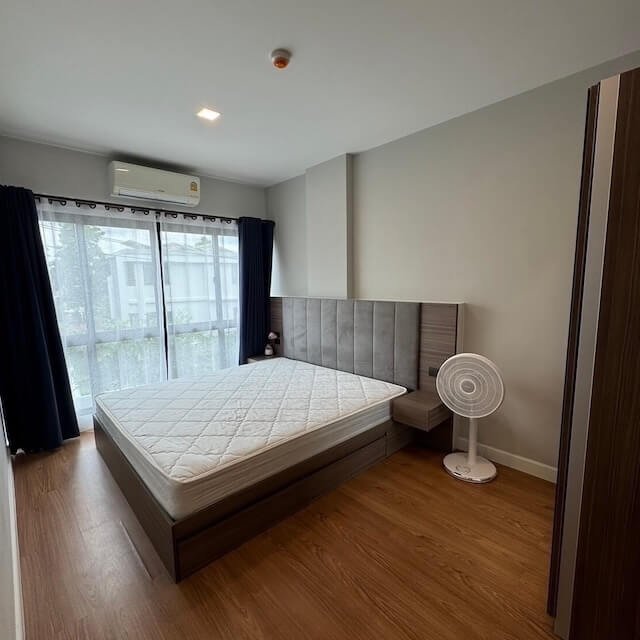
We had been renting a fantastic serviced apartment for eight months. It was in a great location, fully furnished, and just felt like home. Since we planned to stay long term, I never thought to worry about whether we could extend.
With just one week left on the contract, I casually dropped by reception to discuss renewal.
What I expected:
“Sure! Let’s extend your contract, just sign here.”
What I got:
“No. Someone else booked your room already. You have to move out next week.”
I was stunned. Surely, they should have given me a heads up before renting my place to someone else? I pushed back, asking why they hadn’t told me earlier or given me first priority to renew.
The response? Tough luck. Someone had booked it the moment my lease ended, and there was nothing they could do about it.
Now, I had seven days to find a new place to live before I was effectively homeless, with two carloads of belongings and no storage solution.
Scrambling for a Solution
Panic set in. Moving wasn’t in my plans, and now I had to rush to find something livable in an impossibly short timeframe.
Luckily, I managed to secure a monthly rental studio nearby, which gave me a temporary place to stay while I searched for a long-term solution. But that move was expensive, stressful, and completely avoidable.
How to Make Sure This Never Happens to You
- Check your contract before signing. Look for a “right to extend” clause, if it’s not there, ask to have it added.
- Give yourself at least a month of breathing room. If you want to extend, bring it up well before your lease ends, not a week before.
- Never assume you’ll get priority. In Thailand, landlords and property managers often prioritize new bookings over existing tenants, especially in serviced apartments.
- Have a backup plan. If an extension isn’t guaranteed, start scouting new places in advance, so you’re not left scrambling at the last minute.
Lesson learned: In Thailand, your rental isn’t truly yours unless it’s in writing.
Never Ending Repairs: Why “Fixed” Doesn’t Always Mean Fixed in Chiang Mai, Thailand
If you live in Thailand long enough, you’ll eventually encounter the repair loop, a cycle of temporary fixes, repeated call outs, and endless waiting for a problem to actually get solved.
It’s not necessarily a landlord issue; it’s just how things work here.
Coming from the West, you might expect that when something breaks, a professional shows up, diagnoses the issue, fixes it, and that’s the end of it. Not in Thailand.
Here, repairs rarely get fixed on the first attempt.
The Aircon That Took Five Visits to Fix

One of my most frustrating experiences happened in an otherwise fantastic condo.
One day, my air conditioning unit stopped blowing cold air. Simple enough, right? I reported it to the building management, and they assured me a repair guy would come by the next day.
Visit #1: A guy shows up, gives the unit a wipe down, sprays some cleaning fluid, and says it’s fixed. Two hours later, it’s back to blowing warm air.
Visit #2: He comes back, refills the refrigerant, and leaves. That should do it. The next day, warm air again.
Visit #3: Now he replaces a sensor, insisting this was the real problem all along. A few hours later, no change.
Visit #4: They swap out the circuit board, because maybe that’s the issue. Still no cold air.
Visit #5: Finally, after a full week of sweating through sleepless nights, they replace the compressor, the actual problem from the very beginning.
Why Does This Happen?
Instead of diagnosing the exact issue upfront, many repairmen start with the most common fix, hoping that will solve it. When that doesn’t work, they move on to the next most likely fix, and so on.
This trial and error approach is just how things are done here, and if you don’t expect it, it can be incredibly frustrating.
How to Save Yourself the Headache
While you can’t completely avoid the repair loop, you can make life easier with these steps:
- Check for issues before moving in. Test aircon units, water pressure, sinks, and showers before signing a lease. If something seems off, ask the landlord to fix it before you move in, it’s much easier than dealing with it later.
- Be patient. Expect repairs to take multiple visits. Losing your temper won’t make things faster.
- Be persistent. If they say it’s fixed but it’s not, call them back. Again. And again.
- Ask for a different technician. If you’re stuck in the repair loop, request someone new, sometimes a fresh set of eyes solves the problem faster.
- Have a backup plan. If your aircon is broken, consider a portable fan or spending more time at a café or mall until it’s fixed.
In Thailand, “fixed” doesn’t always mean fixed, at least not on the first attempt. But with some patience and persistence, you’ll eventually get there.
The Smelly Drain Problem in Chiang Mai Apartments: How to Fix Bad Plumbing
If you spend long enough renting in Thailand, at some point, you’re going to encounter “drain smells.”
It doesn’t matter if the place is brand new or an older building, Thai plumbing has a habit of allowing foul odors to creep up from the drains and fill your bathroom with a sewage like stench.
I’ve dealt with this issue in multiple apartments and even a house, and let me tell you, once it starts, it doesn’t go away on its own.
Why Does This Happen?

Unlike in many Western countries, Thailand’s drainage systems don’t always have effective water traps (the U-shaped bends in pipes that prevent gases from coming back up). This means that:
- Sewer gases can rise straight up into your bathroom.
- Tiny drain flies love the damp conditions and will make themselves at home.
- Humidity worsens the issue, making the smell more intense.
How We Tried (and Failed) to Fix It
Naturally, our first attempt was to go full chemical warfare.
- Drain cleaners? Useless. The smell always returned.
- Bleach? Slightly masked the smell, but didn’t fix the problem.
- Essential oils? Nice try, but completely ineffective.
After realizing that chemical solutions weren’t cutting it, we started experimenting with physical barriers:
- Drain valves from China? Didn’t fit Thai pipes.
- Metal drain cap covers? Still let the smells through.
- Plastic drain mats? Finally, success!
The Best Fix: Sealing the Drains Properly
Through trial and error, we found that simple plastic drain mats were the most effective solution. These flexible covers sit over the drain and completely block odors from coming up.
Beyond this, here’s what we learned works best:
- Keep the sink plug in when not in use. This prevents gases from rising.
- Use drain cleaner regularly. Even though it doesn’t stop the smell, it helps prevent blockages that make the problem worse.
- For serious cases, install a proper drain trap. If you’re living somewhere long term, hiring a plumber to install a proper U-bend trap is a permanent fix.
If you’re moving into a new rental, do a drain check before signing. Run some water, take a deep breath, and trust your nose, if there’s even a hint of a bad smell, it’s only going to get worse over time.
Chiang Mai Rental Horror: When Landlords Don’t Pay Their Utility Bills

Not all bad rental experiences start with shady landlords, sometimes, they’re just in over their heads.
One of our more recent rentals was from a seemingly lovely family who had just purchased the property as an investment. When signing the paperwork, everything felt unusually rushed. They were eager to secure the deposit and first month’s rent as quickly as possible.
Curious, we asked why.
It turned out the landlord had overstretched themselves financially, they were relying on our rent money to pay the mortgage on this second property. It was clear they were in a tough spot, but at the time, it didn’t seem like a huge issue.
We signed the contract and moved in.
And Then… the Power Cut
Four days later, everything went dark.
At first, we assumed it was just a temporary blackout, power outages in Thailand aren’t unheard of. But then we stepped outside and noticed the neighbours still had power, except for us.
Something was wrong. Then we noticed wires disconnected from the electricity meter.
A quick call to the electricity supplier confirmed our worst fear, the landlord had not paid the electric bill for three months, and the power company had finally cut them off.
We contacted the landlord immediately and gave them two options:
- They pay the outstanding bill immediately, or
- We pay the bill ourselves and deduct it from next month’s rent.
After some back and forth, they reluctantly paid their electric bill, and power was restored six hours later.
How to Avoid This Situation
This experience was a wake up call, your landlord’s financial health can directly affect you, and if they default on their bills (or mortgage), you could end up in the middle of a mess you never signed up for.
Here’s how to protect yourself:
- Pay attention to red flags. If your landlord seems desperate to secure your deposit or is rushing paperwork, ask yourself why.
- Check outstanding utility bills before moving in. Ask the landlord for proof that all utilities are up to date before signing anything.
- Be cautious with landlords who rely on your rent to survive. If they’re struggling financially, they might cut corners, delay repairs, or even lose the property altogether.
In hindsight, we should have walked away the moment we sensed financial instability. No matter how nice a property seems, if the landlord’s struggling, you could be next in line to deal with the consequences.
Final Thoughts – Learn From My Mistakes, Not Your Own
Finding the perfect place to live in Chiang Mai isn’t just about picking a nice looking property, it’s about knowing what lies beneath the surface.
I’ve made just about every mistake possible, from getting scammed on electricity, dealing with landlords who don’t pay their bills, being forced to move on short notice, living with cockroach infestations, to enduring endless noise and Airbnb neighbors.
Every single one of these experiences could have been avoided if I had known what to look for upfront.
What You Should Take Away From This
If there’s one thing I hope you get from this article, it’s that renting in Chiang Mai requires more than just picking a place you like, it requires knowing how to avoid the common pitfalls.
Here’s the ultimate checklist:
- Check the electricity rate. If it’s above government rate and not a registered condo, walk away.
- Ensure the right to extend is in the contract. Don’t assume you can stay longer, get it in writing.
- Expect slow repairs. Make sure everything works before moving in to avoid weeks of frustration.
- Check for pests. Look under the fridge, behind the furniture, and trust your nose, mothballs = cockroach cover up.
- Know your landlord’s financial situation. If they’re struggling, you could be in for some nasty surprises.
- Investigate nighttime noise. Visit at night, check for street dogs, event venues, and Airbnb activity.
- Read the contract carefully. Never rush through it, every clause matters.
A little extra effort before signing can save you months of stress, lost deposits, and the headache of moving again.
Chiang Mai is an amazing place to live, as long as you know how to rent smart.
Now that you’re armed with this knowledge, go find the perfect place, without the nightmare stories.
Frequently Asked Questions: Renting in Chiang Mai
Is renting in Chiang Mai expensive?
No, renting in Chiang Mai is relatively affordable compared to Western cities. Studio apartments start at around 5,000 THB per month, while modern one bedroom condos in popular areas range from 10,000 to 20,000 THB. Luxury condos or larger houses can cost upwards of 20,000 THB per month.
What is the most common rental scam in Chiang Mai?
One of the most common scams is landlords overcharging for electricity. Some landlords charge 10+ THB per unit when the government rate is only around 4 THB. Others may tamper with electricity meters to inflate bills. Always check the electricity rate before signing a lease and try to pay directly to the Provincial Electricity Authority (PEA).
How can I avoid renting an apartment with pest problems?
Before signing a lease, check for signs of cockroaches or other pests by inspecting under furniture, inside cabinets, and behind appliances. Be cautious if you smell strong mothballs, as they are often used to mask pest problems. Visiting the property at night can also reveal active infestations.
Are short term rentals like Airbnb a problem in Chiang Mai?
Yes, some apartment buildings have high turnover due to Airbnb guests, leading to noise issues and frequent disturbances. Before renting, ask if the building allows short term stays and check reviews for complaints about noise or transient tenants.
How can I check if a neighborhood is noisy before renting?
Visit the area at night to listen for street dogs, nightlife, or event venues that may cause disturbances. Look for bars, clubs, or wedding venues nearby on Google Maps and read resident reviews to see if noise is a recurring issue.
Can my landlord refuse to extend my lease?
Yes, lease extensions are not guaranteed in Chiang Mai. Some landlords prioritize new tenants over renewals, especially in serviced apartments. If you plan to stay long term, ensure there is a “right to extend” clause in your contract and discuss renewal terms well before your lease ends.
What should I check before signing a lease in Chiang Mai?
Before signing a lease, check the electricity rate, inspect for pests, test plumbing and air conditioning, research noise levels, and confirm if the contract allows lease extensions. Also, clarify the deposit refund policy to avoid issues when moving out.
What happens if my landlord doesn’t pay utility bills?
If your landlord fails to pay the building’s utility bills, services like electricity or water can be cut off. Before moving in, ask for proof that all bills are up to date. If you experience sudden service disconnections, contact the utility provider to confirm the issue.
Are rental repairs in Chiang Mai reliable?
Repairs in Chiang Mai often take multiple visits to fix an issue. Many repairmen use a trial and error approach instead of diagnosing the exact problem. Before moving in, test everything, and if repairs are needed, insist they be completed before signing the lease.
How can I ensure I get my rental deposit back?
To increase your chances of getting your deposit back, document the apartment’s condition with photos when you move in, keep records of all maintenance requests, and leave the unit in good condition. If a landlord unfairly withholds your deposit, mentioning Thai rental laws and the Consumer Protection Act can sometimes help.
